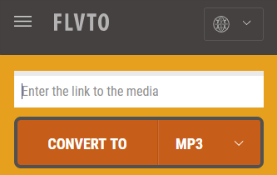 In 2018, a group of prominent record labels sued two very popular YouTube rippers, FLVTO.biz and 2conv.com.
In 2018, a group of prominent record labels sued two very popular YouTube rippers, FLVTO.biz and 2conv.com.
The labels, including Universal, Warner Bros, and Sony, accused the sites of copyright infringement and hoped to quickly shut them down.
That didn’t go as expected. The owner of the sites, a Russian man named Tofig Kurbanov, lawyered up and fought back. Before the copyright issues were even discussed in court, the complaint was already dismissed.
A Battle over Jurisdiction
A Virginia federal court ruled that the music companies lacked personal jurisdiction. The sites were operated from abroad and didn’t ‘purposefully’ target or interact with US users, the court concluded.
This finding was not without controversy. The music companies disagreed and appealed the matter at the Fourth Circuit Court of Appeals, which sent the case back to the district court a few months ago.
The appeals court found that there are more than sufficient facts to conclude that Kurbanov purposefully conducted business in the US, specifically the state of Virginia. Kurbanov and his legal team disagreed but their request for a rehearing was denied.
Petitioning the Supreme Court
In an ultimate effort to take a victory over the matter, Kurbanov and his legal team filed a petition for certiorari at the US Supreme Court. The country’s highest court would be best equipped to decide on the issue, especially because there are conflicting precedents at lower courts.
Specifically, Kurbanov questioned whether his due process rights are violated when he is subjected to the jurisdiction of a US court, simply because his websites are frequently used there. Also, whether minor internet-based and internet-initiated transactions are sufficient to warrant jurisdiction.
Supreme Court Denies to Take the Case
This week the Supreme Court denied the petition, much to the disappointment of Kurbanov and his lawyers. This means that the case will now revert back to the district court to answer outstanding jurisdiction questions.
“Although we’re obviously disappointed that the Supreme Court did not take this opportunity to provide much-needed clarity on the issue, the matter now returns to the district court,” counsel Evan Fray-Witzer tells TorrentFreak.
In its first decision on the motion to dismiss, the district court chose not to conduct a “reasonability test” because the other arguments were sufficient to warrant a dismissal. Following the appeal and the Supreme Court denial, this will now be the first point on the agenda.
If the lower court decides that the complaint fails the reasonability test, it can still be dismissed over a lack of jurisdiction. Otherwise, Kurbanov will have to defend himself and his sites against the record labels’ copyright infringement claims.
‘YouTube Rippers Will Win this Case’
The defense, nonetheless, remains confident and believes it will be able to win the lawsuit no matter what direction it goes.
“It’s a longer path, but we remain confident that at the end of the day, the claims against Mr. Kurbanov will fail,” Fray-Witzer says.
“The record companies have fought technology at every step and yet cassettes, CDs, and streaming services still exist and the music industry continues to thrive,” the attorney adds.
When this lawsuit was filed there wasn’t much public debate about the legality of YouTube rippers but that has changed in recent months. The RIAA’s request to remove the youtube-dl software from GitHub triggered a heated debate that remains ongoing.
At the same time Yout.com, another YouTube ripper site, filed a lawsuit against the RIAA asking the court to declare its service as operating legally.
While they may take years to complete, these cases will be fought tooth and nail by both sides. That will ultimately decide whether people can continue to ‘rip’ content from online streaming services, or not.





